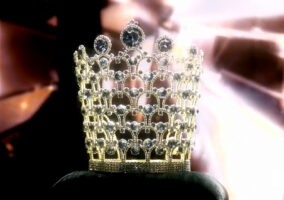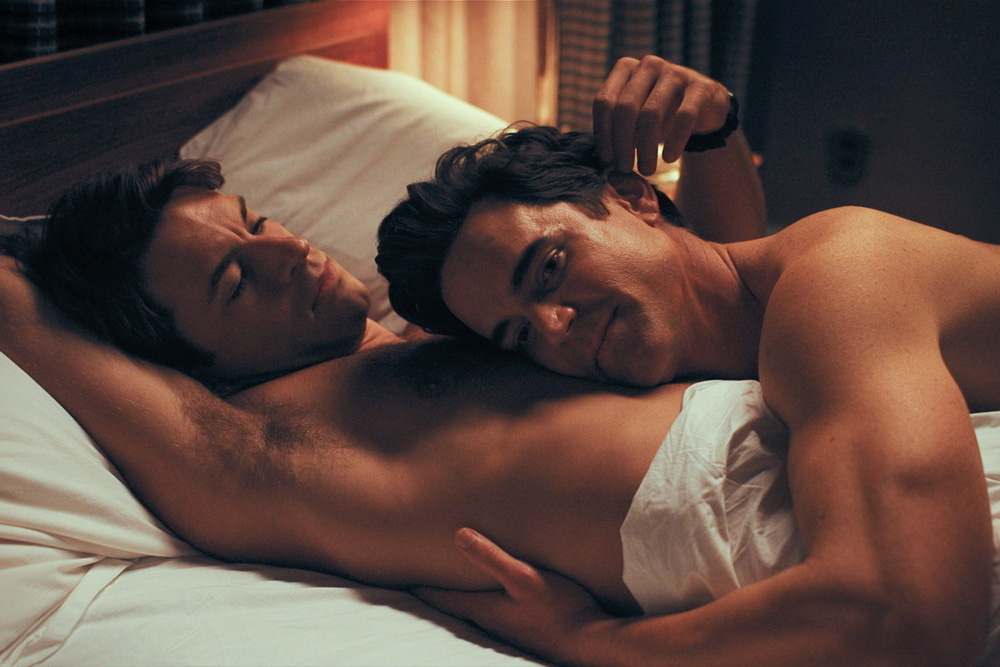
In the second episode of Fellow Travelers the noose is tightening around every queer person in Washington, forcing them to make painful decisions with long-term repercussions that will hurt pretty much everyone affected by them.
Hawk is still waiting in that San Francisco diner in 1986 when Tim’s sister Maggie shows up. She was the one who returned his call. She’s immediately combative, observing that she doesn’t see why Tim was ruined on every other man by his romance with Hawk. “He swears no one ever came close. You stole that from him.” She says she doesn’t want him anywhere near her brother and he replies that it has nothing to do with her. “Why would I fly 3000 miles if I didn’t want to see him?” “I don’t know. So you can say you tried?” The walls are up all around Tim, but Hawk doesn’t appear to be the kind of guy who takes no for an answer.
It’s 1953 and we’re at Senator Smith’s birthday party (thankfully, there was far less bouncing around the timeline this episode). Hawk is navigating the power and family dynamics. The senator pointedly thanks him along with his own children. Lucy is making a play for him, although she’s being very subtle about it. It feels like she wants it to happen, knows it’s going to happen, but is afraid that she’s going to get hurt somehow. The show is pretty good about showing how forcing queer people into socially acceptable relationships causes nothing but confusion and pain for everyone involved. Hawk puts up an extremely smooth facade but the people closest to him can tell it’s a facade, even if they’re unsure about what it’s hiding. The senator’s son has no time for him at all, finding him a phony and social climber. He’s not wrong.
Mary is serving as Tim’s official beard, even going so far as to shake Senator McCarthy’s hand at a Look magazine party in his honor. Roy Cohn takes a mild interest in Tim and his date, but ignores them completely after Tim introduces her. The script never makes this explicit (and even goes so far as to offer a competing explanation), but we wonder if this introduction isn’t what started Mary’s problems later in the episode. Later, Tim stops by for a little blow-him-in-the-hallway sex with Hawk and winds up staying the night. Tim is surprised to figure out that Mary is a lesbian and Hawk reminds him of how important it is for people like them working in government to keep their mouths shut as much as possible. “Keep seeing each other,” he tells Tim. “You both need cover.” He reminds Tim that his Bronze Star basically makes him bulletproof. “Do you like it this way?” Tim asks him. “Your life like this.” Hawk lets him in on his long-term plan, which does not include any mention of Lucy Smith. He thinks he’ll “keep plugging away for five years,” until he gets posted overseas and he’ll eventually quit and buy a villa somewhere “where I can eat what I want and fuck what I want without anyone giving a damn,” all of which sounds vaguely delusional on his part, although it’s clear he’s lived a pretty charmed life. They oversleep and Hawk has to usher Tim quietly out the door without alerting any neighbors.
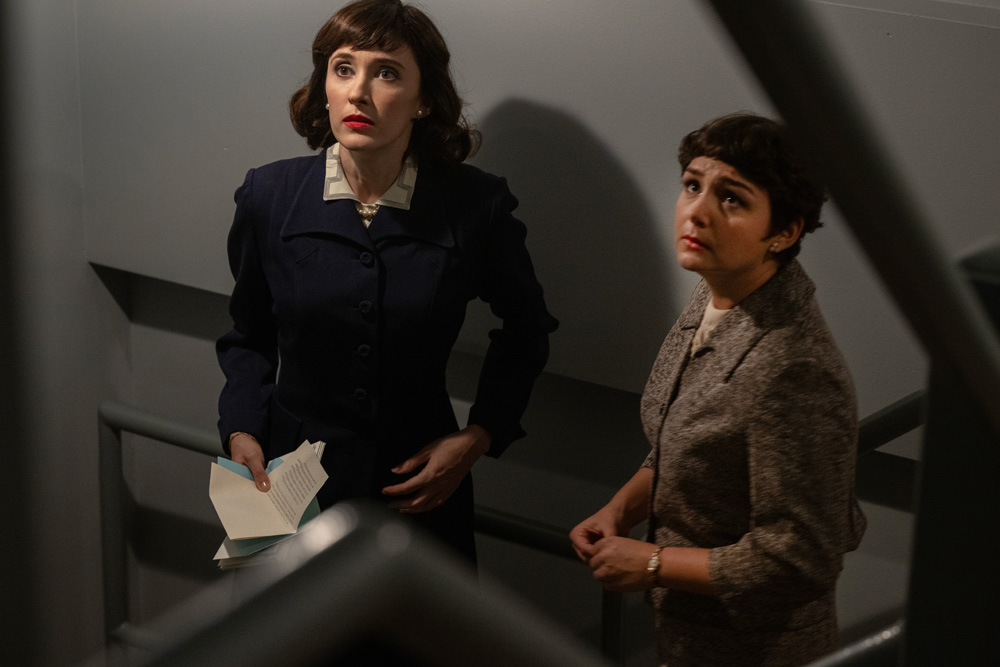
After a particularly alarming State Department meeting on the subject of rooting out deviants, Hawk presses Mary to keep dating Tim, which annoys her because it doesn’t feel like much of a solution to the ongoing problem surrounding them. At Marcus’ newspaper, he can’t get his fellow Black journalists to care that Langston Hughes is being questioned by Cohn and McCarthy, but they declare that focusing on a homosexual Black man is “the last thing we need.” Marcus storms out, angry. At the Hughes hearing, he’s told that Bobby Kennedy hates Cohn. Marcus confronts Schine and Cohn during an impromptu press conference, asking them why they’re not serving in Korea. Cohn sneers at him and dismisses him.
Hawk has lunch with his Main Line mother, who notes after he asks about a wealthy uncle’s insolvency that he appears to be looking to make some sort of quick getaway. It would seem some part of him realizes his five-year plan probably isn’t tenable and he’s trying to skip directly to the buying-the-villa part of it. His mother notes that his father is dying and could be persuaded to put Hawk back in the will if he’d go and apologize to him. Tim is having lunch with Mary and asks her how she feels about… well, all of it: her family, the hiding they’re forced to do, her own shame. She’s practical but surreptitious in her responses (note how often she nervously says hello to any passerby) and invites him to a party at her place that night. He says he’s hoping Hawk will call him before then. Marcus is shut out of the McCarthy hearings by order of Roy Cohn. “There are times when you need to keep your mouth shut, my friend,” the security guard tells him.
Tim goes to Mary’s party and meets her girlfriend Caroline. He is shocked to discover they live together, but Mary assures him the world just sees them as roommates on a budget. She asks him not to tell Hawk about the arrangement, though. She knows he’d never approve of it. Jonathan Bailey is adorable during the house party scene, as he opens up to socializing around queer people and allowing himself to have fun with them. It’s a side of the coming-out process you don’t see depicted nearly as much as romantic or sexual awakenings, but the social aspect of queerness is one of the most illuminating and freeing parts of coming out. We wrote about the long history and importance of queer house parties in our book and we were thrilled to see one of them convincingly and lovingly portrayed here. Tim dances with a cute boy at the party, who tells him that he’s celibate for religious reasons. “You have to choose what matters most to you.” Everyone in this situation is just trying to figure out a way to navigate it.
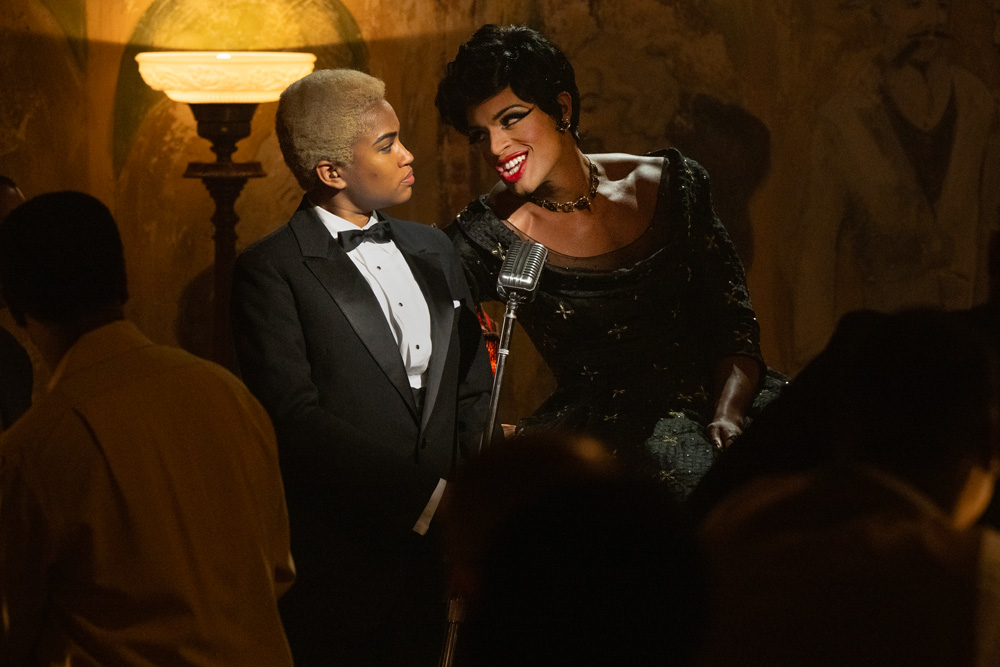
At the Cozy Corner, the underground queer club, the drag performers are world-class and Marcus is pissed; not only at being taken off the McCarthy beat, but because he’s personally offended that Langston Hughes was put through the humiliation of testifying and more than a little annoyed that the club is becoming a hangout for white gays. Hawk asks him if he’s opposed to integration. “You can’t call it that if the door only opens one way,” he reminds Hawk. Hawk gives him a little dirt on David Schine, Cohn’s obsession/partner: he was 4F during the War. Marcus pointedly notes that Tim is a good guy. Hawk responds that it’s not easy. Marcus notes that the difference between the two of them is that he’d like more out of his life than hookups and bars. Later, he catches up with Tim in the Senate hallway and asks about Schine’s fitness. Tim is annoyed to be pumped for information but Marcus trades news of Hawk to get what he wants and he urges Tim to get over him.
Hawk visits his rigidly unemotive and thoroughly repressed Main Line family. He retreats almost immediately to his former bedroom, where an old tennis trophy reminds him of the boy he once loved, who died in the war. He goes to see his miserable father on his deathbed. “Has it changed?” his father asks pointedly. “Have you?” Hawk assures him that he has, and that a wife and children are somewhere in his future. His father demands an apology for embarrassing him and for having walked in on him and the boy in question. Hawk reaches his limit and tells his father that “not a single fucking soul gives a shit” that he’s dying and walks out to the sound of his father disowning him. He shares a cigarette with his poor mother, who explains that she stayed with Hawk’s father for the same reason Hawk has nothing to do with him: it’s easier. They have a very coded conversation about Hawk’s life and he says in so many words that he’s found someone. She knows he’s not talking about Lucy Smith, but she says she’s glad for him. He hightails it out of there and basically rushes into Tim’s arms, declaring that he’s “home now.” If Hawk finds a relationship with Tim difficult, it’s almost certainly because he’s falling in love with him; something he has strenuously avoided for decades.
Mary gets a phone call from her girlfriend Caroline at the office and talks to her in code, mindful of the watchful eye of the suspicious commie-hunting secretary. She agrees to meet her in the stairway, where they confer over the fact that she’s being investigated as a deviant, looking over their shoulders the whole time and reacting to every noise. The show is doing a great job with these small moments depicting the fear that underlies queer people’s existence in a social situation like this. Their apartment is investigated by federal agents and they’re asked humiliating questions about their mattress and lack of makeup. Eventually the agents leave, but they tell Caroline that they will be contacting her family and co-workers. She panics and pushes Mary off of her when she tries to comfort her. It is nearly impossible to have a healthy, lasting romantic relationship with anyone under these conditions, which is the entire point of these conditions in the first place. It’s about removing any easy way to have an honest life. It’s about forcing people to lie and to hide themselves forever.
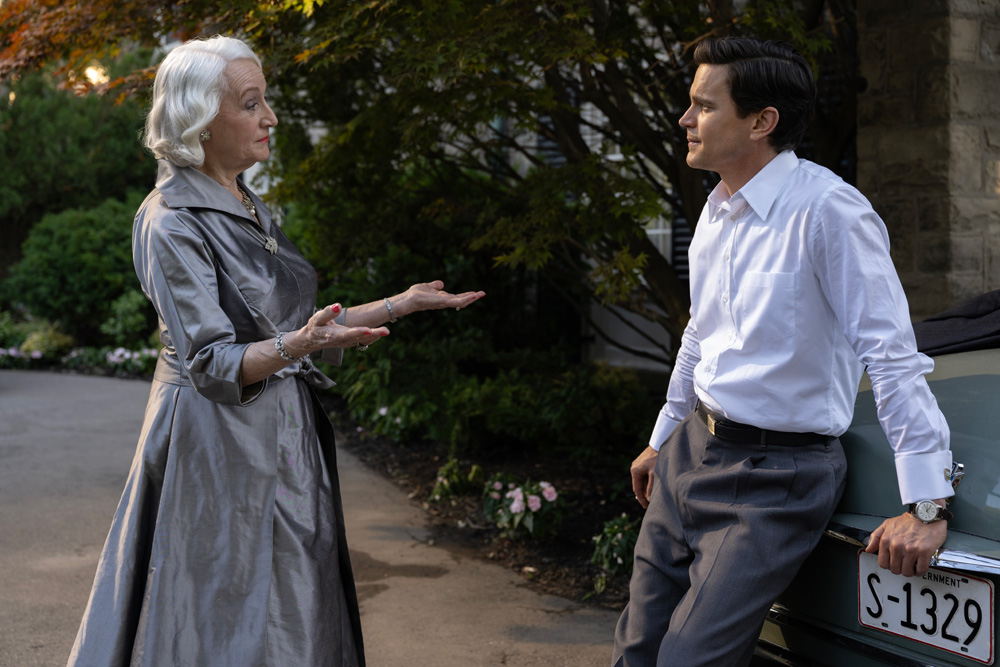
Tim rushes to see Hawk at his apartment, upset over the news that Mary and Caroline are being investigated. He relates it all to Hawk, who is angry at Mary for being so sloppy and at Tim for exposing himself by going to a queer house party. Hawk forces him to write a breakup letter with Mary and slip it under her door. Tim is appalled and protests. Hawk won’t have it. “You broke the rules, Skippy. You went there, you palled around with a bunch of queers.” He reminds Tim that he’d be helping them both by providing this cover for them and that Mary could use it to throw Caroline under the bus. Tim swears she’d never do that. “Watch her,” Hawk replies darkly. Tim is furious and tells Hawk that Senator Smith is on McCarthy’s radar “and that’s the last dirty thing I’m ever gonna do for you.” Mary does, in fact, throw Caroline under the bus, although she makes it clear that she’s skipped out of town. This seems less a betrayal and more about two people coming to the only conclusion that leaves them both safe. Once again: it is nearly impossible to form and keep romantic relationships in this atmosphere. The system will find every way possible to keep you miserable and alone.
It’s 1986 and Hawk is calling Lucy from a gay bar to tell her that he’s flying home the next day. He hangs out in the bar like a tourist or an alien would. It’s not his world at all. He lectures a young man about safe sex and thinking he’s bulletproof. “Not everyone else is,” he says regretfully before leaving. He walks to Tim’s apartment over a butcher shop and winds up letting himself into his apartment. Tim works very hard to control his reaction, noting both his failing eyesight and encroaching dementia before convincing himself that “Hawkins Fuller is standing in my apartment.”
In 1953, Marcus stops Bobby Kennedy in the senate hallway and informs him that David Schine has been using his money and influence to avoid the draft. Kennedy asks him why he’s giving him this information. “My paper doesn’t have the power to tackle this, and you do.” Meanwhile, Hawk is telling Senator Smith that he’s in McCarthy’s site and he just needs time to exploit what he sees as the three weaknesses that could cause McCarthy’s downfall: “Booze, Cohn’s ego, and the utter uselessness of David Schine.” He’s actually exactly right about that and it’s kind of fun to think that the story is positioning queer and Black people as the ones responsible for taking down McCarthy. Smith responds by telling Hawk that someone asked him the other day why Washington’s most eligible bachelor remains unmarried, “and I couldn’t think of an answer.” Hawk’s five-year plan is quickly shrinking in length. He goes to see Lucy and makes his play for her.
At the Cozy Corner, Marcus is approached by Frankie the drag queen (who looks to be modeled fairly closely on Jackie Shane). She read his piece on Langston Hughes and he seeks to impress her by quoting Kids Who Die in its entirety. “You’re a very interesting man,” she notes. In 1986, Hawk is staying for dinner. In 1953, Mary is crying alone in her bed, Marcus and Frankie are getting to know each other better, and Tim is confessing his sins. Relationships are starting, relationships are ending, relationships are heating up and relationships are being built on lies. We understand the complaints that a show like this focuses on tragic gays perhaps a little too much, we think it’s doing exactly right in how it depicts people just trying to live their lives under enormous oppression and restrictions, as well as the repercussions of trying to force them to lie about themselves. Hawk would have been Tim’s lifelong caretaker if the world hadn’t worked so hard to keep them apart. Hawk kidded himself. No one is bulletproof against a barrage.
Rachel Zegler Promotes THE HUNGER GAMES: THE BALLAD OF SONGBIRDS & SNAKES in Dior Next Post:
THE GILDED AGE, S2 E2: Some Sort of Trick
Please review our Community Guidelines before posting a comment. Thank you!

